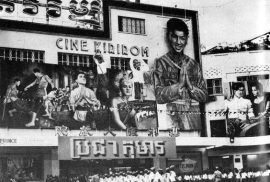Introduction
Film, as a source of entertainment and escapism, has played a crucial role throughout history. It serves beyond mere enjoyment, aiding in reconciling with the past, preserving traditions, and expressing national identity. During the twentieth century, the introduction of film in Southeast Asia varied across countries, primarily through colonial contact driven by various European powers, which significantly impacted the film industry. It has brought the introduction of technology to Southeast Asia, which marked the inception of a local film industry. Films began to incorporate local languages, music, settings, and actors, gradually gaining popularity among the local audience (Ang, 2021). Despite initial developments, certain countries experienced downfall periods that erased progress. Cambodia, notably affected by the painful political history of the Khmer Rouge invasion, faced considerable challenges, including the film business.


